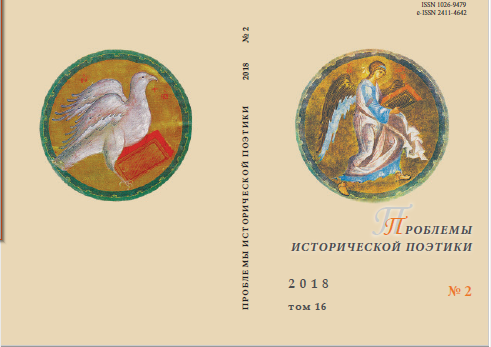АНТРОПОНИМЫ В ПОВЕСТИ Л. Н. ТОЛСТОГО «ХАДЖИ-МУРАТ»
ANTHROPONYMS IN L. N. TOLSTOY’S POVEST’ “HADJI-MURAD”
Author(s): Elena MasolovaSubject(s): Semantics, Russian Literature, Theory of Literature
Published by: Петрозаводский государственный университет
Keywords: anthroponym; onym; patronymic; poetonym; name semantics; prototype; generic characters; prospective function;
Summary/Abstract: This article considers the anthroponyms and the ways of naming characters in Tolstoy’s povest’ “Hadji Murad” and proved that onyms, patronymics and poetonyms fulfil an anticipative or foreshadowing function. Describing simple life of people in “Hadji Murad”, Tolstoy resorts to the generic naming of people by their age, family status and description of clothing. Mentioning the ambitious and faceless high-ranking people the author uses their titles or a military rank that often replace their surnames. Sometimes Tolstoy refers to the multidimensional representation of the characters and combines the indication of their social status, brief biographical information and portrait description. Showing his disfavour to Nikolas I, Tolstoy does not use the title “tsar” while describing him but refers to him by his name Nikolas or his name and patronymic when the latter becomes an object of worship or gives an order to kill people. In “Hadji Murad” Pyotr Mikhailovich Avdeev is a righteous man by Tolstoy.
Journal: Проблемы исторической поэтики
- Issue Year: 16/2018
- Issue No: 2
- Page Range: 158-173
- Page Count: 16
- Language: Russian

